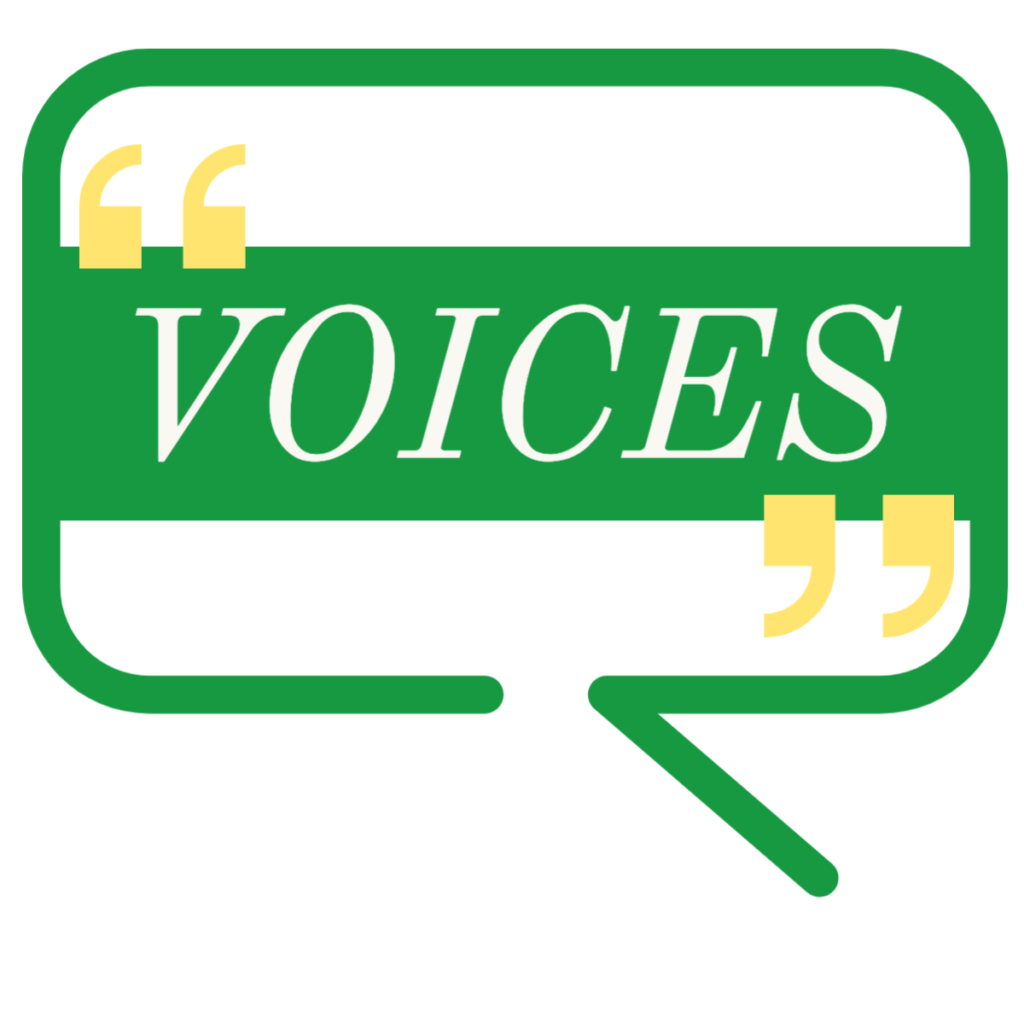Voices – 10/16/2020
Katie Maier – Senior

Tell us a bit about yourself! What kind of things do you like to do, hobbies, fun facts, etc.?
I’m Katie Maier, a senior at MHS. I love to write fantasy and historical fiction, play violin, go backpacking in the mountains, and nerd out about history. I’m in Creative Writing Club, Writer’s Block, Youth Activism Club, and the MHS Gender-Sexuality Alliance (GSA). Pre-pandemic, I volunteered at the Mason Historical Society, championing the use of archival paper and editing and writing for the 2019 edition Memories of Mason booklet. I hope to someday become an author and have a history-related career.
What are you passionate about speaking out on in the community? Are there any organizations or clubs that you’re a part of that work to help spread the messages that you’re advocating for?
I’m an unrelenting advocate of history and health curriculum reform and of an equitable, identity-affirming school climate. Over the summer, I had the honor and opportunity of working on history curriculum reform under the Mason Community Coalition of Equity and Justice student task force headed by the phenomenal Mason alum, Nina Kisanga. Thanks to Nina’s resource leads, we were able to accumulate information on LGBTQ+ related history and recommend their integration in the form of learning objectives. While we did recommend reforms, I wasn’t sure what measures would actually be taken by the school, so I initiated a GSA project with the resources we gathered: a comprehensive LGBTQ+ history compendium.
What do you hope to do through spreading the word and informing others about these topics?
[I hope] that the LGBTQ+ history compendium can help equip students and teachers with the resources to learn and even teach with. The goal is to help make equitable and inclusive education more easily attainable at MHS. The compendium is still in the early stages, but we plan to see it through.
Health class is absurdly cisheteronormative (meaning it excludes LGBTQ+ people) and insufficient in dismantling misogyny and misogynoir, rape culture, the fetishization of certain races and sexualities, popular misconceptions about physical relations, and ignorance of the science of LGBTQ+ people (transgender people especially). In a 2017 Journal of Adolescent Health expert review reaffirmed the data proving the harms of abstinence-only-until marriage (AOUM) programs and the benefits of a more comprehensive sexuality education. Unfortunately, Ohio requires teaching AOUM, but nothing prevents local curricula from taking the effective route of inclusive sex ed alongside abstinence. And that change is definitely necessary.
Why do we skirt around the issue of health in a health class? The message has been that the health of LGBTQ+ youth is not worthy enough to address. Disregarding the science that supports trans kids’ gender identities leads to ignorance. Ignorance is deadly — It hinders trans people’s efforts to treat their gender dysphoria (the distress over the mismatch between gender identity and sex assigned at birth, [which] is damaging to their mental health) and also externally threatens their safety by paving the way for violent bigotry. The only way to end it is with better education.
How does your identity and the things you support play a role in the way you view the world?
Too many try to justify their bigotry with their religion — as a devout Catholic myself, I know that scripture says God created the world and provided humans with free will; thus, that extends to God creating nature — Yes, that includes those gay penguins everyone’s talking about. On the free will aspect, we change our appearance from its originality through hair-dye and makeup all the time — the transphobic argument that changing appearance deviates from “God’s intention” doesn’t track either.
We aren’t even born with gender — biological sex itself isn’t binary (many people might be intersex and not even know it), and gender (which is also not limited to binary female or male genders) emerged to fulfill sociological roles. One example of non-binary gender is the Native American third gender, the sacred and historical Two-Spirit identity (it can include, but is not limited to, modern LGBTQ+ identities because it predates modern identities).
Why are these topics so meaningful to you?
My own experiences with repression and compulsory heterosexuality (the assumption and enforcement of the idea that everyone is heterosexual, ingrained by a heteronormative, patriarchal society) makes me sympathetic to those going through similar experiences. After finally figuring out my identity, the failures of our education became especially glaring.
What would you like to see change or improve within the world we live in? That is, what do you want to change by advocating for the topics you’re speaking out on?
More than anything, I want my friends to be able to live without fear of discrimination. I want a world where not-straight is as normal as straight, and being transgender is as normal as being cisgender. We need that world, and we need it now. Through teaching history inclusively and enforcing an identity-affirming school climate, we can start building that future in Mason.
If there’s one thing you want people to take away from reading this, what would it be?
Representation normalizes. Crucially, it often communicates, “Your experiences exist, your struggles exist, and you exist.” I’m so passionate about education reform because I know identity-affirming and inclusive education will improve school climate, safety, and learning for all students. Currently, too many kids are subjected to bigoted vitriol and forced outings. Too often are kids afraid to even go to school because of their LGBTQ+ identity. My openness isn’t proof that our environment is “okay,” it’s simply a result of senioritis, stubbornness, spite, and support from friends and family. What do we, as a school, have to lose from learning? What do we have to lose from compassion and empathy? We have everything to gain.
